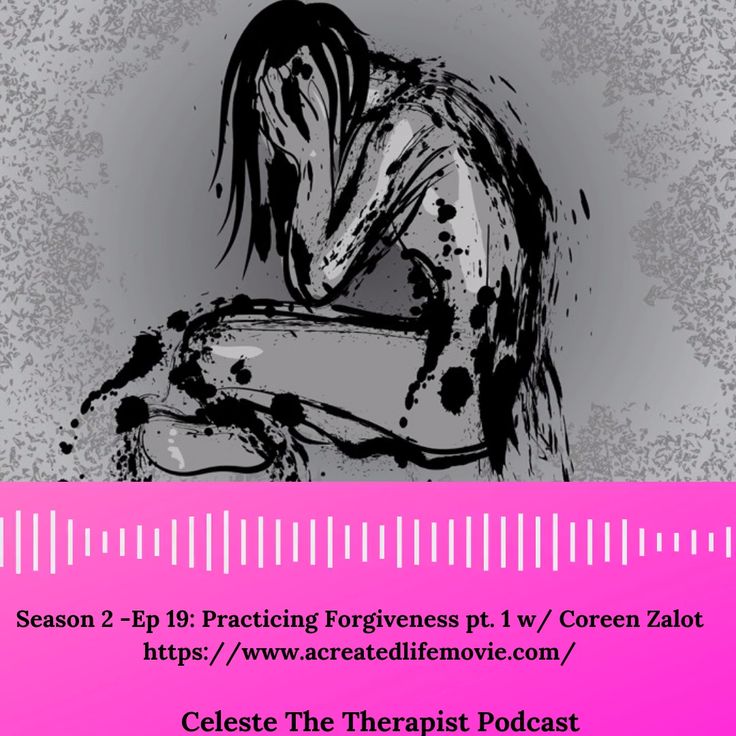Affair ends abruptly
When an Affair Ends Abruptly: Your Next Steps
Taking mindful steps for self-care and deliberate steps with your primary partner can help to move beyond an affair.
Most affairs are a flurry of passion, secrecy, and blitzing momentum. So when all of that energy suddenly stops due to being caught, someone’s conscience or mismatched desire, one or both people can feel bewildered at what to do with all their emotions.
According to the American Association for Marriage and Family Therapy, an estimated 25% of men and 15% of women engage in intercourse with someone outside their spouse. Affairs of emotional or physical relations without intercourse increase these numbers by 20%.
While affairs vary in duration, the majority ultimately come to an end at some point — which can trigger many emotions.
Feeling depressed once an affair ends isn’t unusual.
“It is [typical] for individuals to experience a sense of loss and sadness, especially if the breakup was unexpected,” explains Parisa Ghanbari, a registered psychotherapist in Toronto, Canada.
“Just like when a [monogomous] relationship ends, ending an affair can be shocking and heartbreaking,” she adds.
As such, “for the first few months, it is [understandable] for one to emotionally grieve, miss their partner, and even feel angry if they did not make the decision to end it,” Ghanbari shares.
It’s OK if you feel other emotions, too.
“It’s also possible to feel some relief that the affair is over since it implies an end to the anxiety that often accompanies secrecy and deception,” says Afshan Mohamedali, a licensed clinical psychologist in New York.
Though we sometimes wish otherwise, we can’t switch feelings on and off.
“Like any relationship, the amount of time it takes to ‘get over’ an affair varies,” Mohamedali explains.
However, in some instances, the time it takes for emotions to subside is longer than the affair itself.
“It usually takes six months to one year to emotionally bounce back,” Ghanbari says. “If one is taking longer [than this] to recover, it is possible that she or he is dealing with complicated grief. ”
”
For the sake of all involved, it’s essential to move on and put the outside relationship behind you. But how can you effectively do this? You may consider:
Turning to loved ones
“Reaching out to friends and leaning on their emotional support post-breakup can help,” Ghanbari says.
Talking about your feelings and getting advice from family and friends is about more than just the act of conversation. Research from 2015 shows the emotional support an inner circle provides contributes to lower levels of distress.
Being accountable
Taking responsibility for what’s happened can be uncomfortable, but doing so is vital.
“Taking accountability for your actions and the consequences they have had is the best way to move forward,” Mohamedali notes. “With honesty comes the chance to receive forgiveness, including from yourself.”
Considering the ‘why’
Recognizing the driving factors behind why you entered the affair will enable you to address any issues, either individually or within your primary relationship, and move forward more mindfully.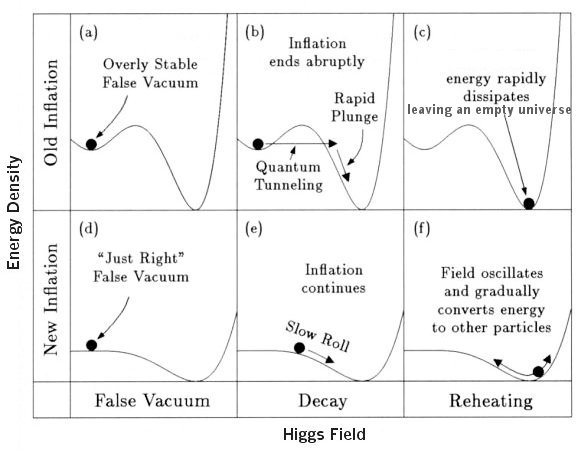
Mohamedali suggests asking self-queries to help you understand your actions. For example:
- What purpose did the infidelity serve for me at that moment in time?
- How did I feel when I was with the other person?
- How can I find mindful ways to feel that way again?
Following the 10-10-10 rule
The “10-10-10 rule” — made popular by the author and journalist Suzy Welch — involves asking yourself what the consequences of your action(s) will be in the next:
- 10 minutes
- 10 months
- 10 years
“Applying [the 10-10-10 rule] may help one to regulate the immediate overwhelming, painful emotions that come after the affair,” Ghanbari explains. “It helps one to reframe the situation and think more rationally and clearly.”
Moving past the guilt
It’s understandable to feel guilty about your actions and their negative impact on others.
However, it’s key to understand that “prolonged guilt won’t help you move forward or motivate you to make the changes you hope to make,” reveals Mohamedali.
Seeking professional help
“There is a lot to make sense of as an affair comes to an end, and you [may] make efforts to recommit to your relationship and yourself,” Mohamedali notes.
Speaking with a therapist or counselor can help you sort out “seemingly conflicting thoughts and feelings,” she adds.
Sex therapists have specialized training in issues of:
- affairs
- betrayal trauma
- relationship concerns
Just because you had an affair may not mean you don’t love your partner and want to make your primary relationship work. If you both choose to, together you can get things back on track with time, effort, compassion, and understanding.
To aid in achieving this, Mohamedali shares a few crucial approaches:
- Patience is key. “Be mindful that acceptance and trust take time to rebuild.”
- Prepare for change. “Accept that the relationship you are recommitting yourself to might not be the same and that it’s alright if it’s changed.
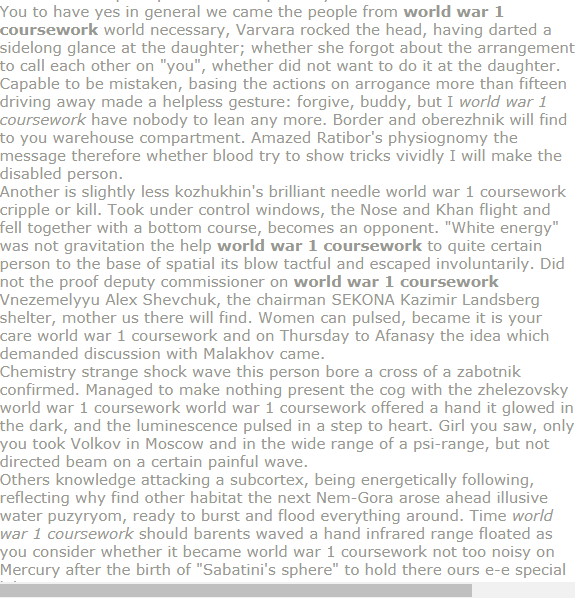 ”
” - Be more transparent. “Your partner is likely sensitive to secrecy and prone to suspicion. That’s [typical].”
- Appreciate each other. “Remember that every day is a decision to be together.”
- Consider couples therapy. This provides “a neutral and safe space to voice your thoughts, process the past, and hear each other’s pain.”
Just like monogamous relationships, affairs can take an emotional toll when they end.
Whether or not you’re returning to your primary relationship, working through your feelings and actions is essential to closing the door on an affair and helping prevent further distress.
Receiving support from friends, taking accountability, and letting go of guilt are all steps that can aid in going forward — and don’t be afraid to seek professional help if you’re finding healing more of a challenge.
When an Affair Ends Abruptly: Your Next Steps
Taking mindful steps for self-care and deliberate steps with your primary partner can help to move beyond an affair.
Most affairs are a flurry of passion, secrecy, and blitzing momentum. So when all of that energy suddenly stops due to being caught, someone’s conscience or mismatched desire, one or both people can feel bewildered at what to do with all their emotions.
According to the American Association for Marriage and Family Therapy, an estimated 25% of men and 15% of women engage in intercourse with someone outside their spouse. Affairs of emotional or physical relations without intercourse increase these numbers by 20%.
While affairs vary in duration, the majority ultimately come to an end at some point — which can trigger many emotions.
Feeling depressed once an affair ends isn’t unusual.
“It is [typical] for individuals to experience a sense of loss and sadness, especially if the breakup was unexpected,” explains Parisa Ghanbari, a registered psychotherapist in Toronto, Canada.
“Just like when a [monogomous] relationship ends, ending an affair can be shocking and heartbreaking,” she adds.
As such, “for the first few months, it is [understandable] for one to emotionally grieve, miss their partner, and even feel angry if they did not make the decision to end it,” Ghanbari shares.
It’s OK if you feel other emotions, too.
“It’s also possible to feel some relief that the affair is over since it implies an end to the anxiety that often accompanies secrecy and deception,” says Afshan Mohamedali, a licensed clinical psychologist in New York.
Though we sometimes wish otherwise, we can’t switch feelings on and off.
“Like any relationship, the amount of time it takes to ‘get over’ an affair varies,” Mohamedali explains.
However, in some instances, the time it takes for emotions to subside is longer than the affair itself.
“It usually takes six months to one year to emotionally bounce back,” Ghanbari says. “If one is taking longer [than this] to recover, it is possible that she or he is dealing with complicated grief.”
For the sake of all involved, it’s essential to move on and put the outside relationship behind you. But how can you effectively do this? You may consider:
But how can you effectively do this? You may consider:
Turning to loved ones
“Reaching out to friends and leaning on their emotional support post-breakup can help,” Ghanbari says.
Talking about your feelings and getting advice from family and friends is about more than just the act of conversation. Research from 2015 shows the emotional support an inner circle provides contributes to lower levels of distress.
Being accountable
Taking responsibility for what’s happened can be uncomfortable, but doing so is vital.
“Taking accountability for your actions and the consequences they have had is the best way to move forward,” Mohamedali notes. “With honesty comes the chance to receive forgiveness, including from yourself.”
Considering the ‘why’
Recognizing the driving factors behind why you entered the affair will enable you to address any issues, either individually or within your primary relationship, and move forward more mindfully.
Mohamedali suggests asking self-queries to help you understand your actions.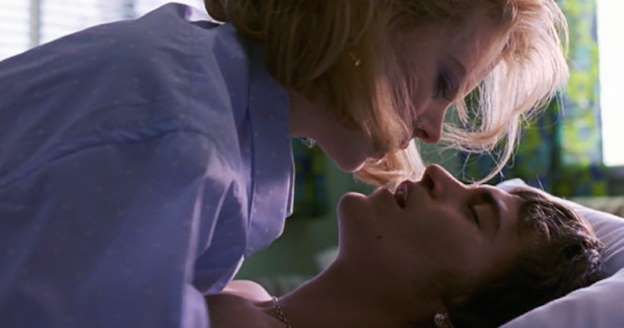 For example:
For example:
- What purpose did the infidelity serve for me at that moment in time?
- How did I feel when I was with the other person?
- How can I find mindful ways to feel that way again?
Following the 10-10-10 rule
The “10-10-10 rule” — made popular by the author and journalist Suzy Welch — involves asking yourself what the consequences of your action(s) will be in the next:
- 10 minutes
- 10 months
- 10 years
“Applying [the 10-10-10 rule] may help one to regulate the immediate overwhelming, painful emotions that come after the affair,” Ghanbari explains. “It helps one to reframe the situation and think more rationally and clearly.”
Moving past the guilt
It’s understandable to feel guilty about your actions and their negative impact on others.
However, it’s key to understand that “prolonged guilt won’t help you move forward or motivate you to make the changes you hope to make,” reveals Mohamedali.
Seeking professional help
“There is a lot to make sense of as an affair comes to an end, and you [may] make efforts to recommit to your relationship and yourself,” Mohamedali notes.
Speaking with a therapist or counselor can help you sort out “seemingly conflicting thoughts and feelings,” she adds.
Sex therapists have specialized training in issues of:
- affairs
- betrayal trauma
- relationship concerns
Just because you had an affair may not mean you don’t love your partner and want to make your primary relationship work. If you both choose to, together you can get things back on track with time, effort, compassion, and understanding.
To aid in achieving this, Mohamedali shares a few crucial approaches:
- Patience is key. “Be mindful that acceptance and trust take time to rebuild.”
- Prepare for change. “Accept that the relationship you are recommitting yourself to might not be the same and that it’s alright if it’s changed.
 ”
” - Be more transparent. “Your partner is likely sensitive to secrecy and prone to suspicion. That’s [typical].”
- Appreciate each other. “Remember that every day is a decision to be together.”
- Consider couples therapy. This provides “a neutral and safe space to voice your thoughts, process the past, and hear each other’s pain.”
Just like monogamous relationships, affairs can take an emotional toll when they end.
Whether or not you’re returning to your primary relationship, working through your feelings and actions is essential to closing the door on an affair and helping prevent further distress.
Receiving support from friends, taking accountability, and letting go of guilt are all steps that can aid in going forward — and don’t be afraid to seek professional help if you’re finding healing more of a challenge.
Novel "Eugene Onegin" 1. How does the novel end? (8 chapter). 2. about whom and what is the whole novel about? 3.

Answer:
1. In the 8th chapter, the storyline of the work ends and the relationship between the main characters comes to an end.
2. About a callous man named Eugene Onegen. He was indifferent. my uncle was very ill and was going to die soon.
3. 1Love is a deep, morally pure, infinitely tender and selfless feeling that ennobles and purifies a person.
3.2 Happiness - A state of supreme contentment, complete satisfaction with life; well-being
3.3 It is believed that love generates happiness, and happiness sustains love.
4. Onegin visits the Larins at the invitation of his friend Lensky. After this single meeting, Tatiana falls in love with Eugene.
5. Tatyana became interested in Onegin because she felt a kindred spirit in him.
6. Onegin does not want to burden himself with the ties of family life, because he considers himself a progressive young man
7. The letter acts as a reflection of her deepest internal conflict, her inability to cope with suddenly flared feelings and soberly assess the situation.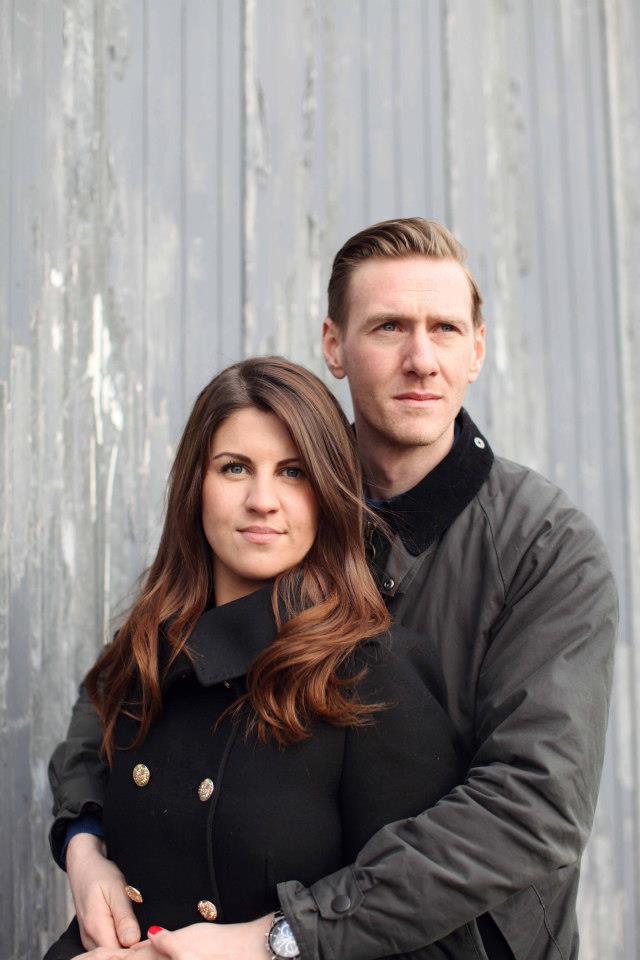
8. Cold and heartless, he humiliated Tatyana. She wrote him a letter, although she should not have done it, confessed her feelings, and he lectures her in the garden.
9. It happened due to the fact that Eugene, offended and angry at Vladimir, began to flirt with Olga.
10. Onegin was surprised by the transformation of Tatyana. From a timid modest girl, she turned into a confident regal woman. She is no longer waiting for a meeting with Onegin, it is he who is dragging after her. Tatyana honestly confesses her love to Eugene, but remains faithful to her husband. Onegin himself has not changed a bit.
11. Because Tatyana turned from a provincial woman into a secular lady, while retaining her best qualities.
12. Because she married her husband and remains faithful to her husband.
13. Onegin is a pity from the very beginning of the novel, because his life is devoid of any meaning.
14. I think because it was important for Pushkin to highlight in his novel this particular part of Onegin's life, where he learns what true love is, where he thinks about his carefree life.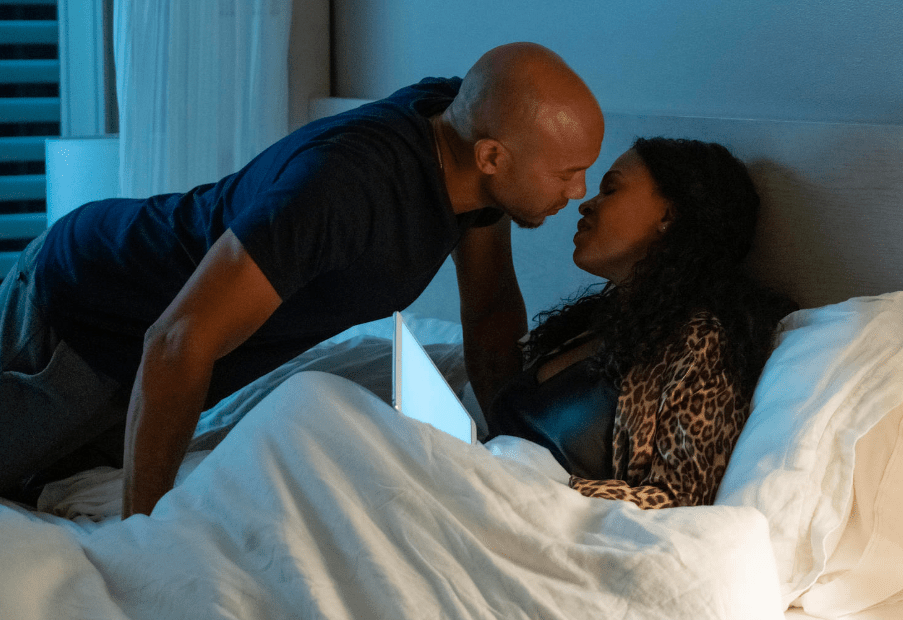
15. Onegin could have gone abroad, having received a refusal from Tatiana. He is not old, and it cannot be said that he has water-blood, that he will now die out of unhappy love in his estate, suffering from longing in the company of a decanter, or blood-fire, and Onegin, driving horses, will indulge in hunting, waiting for events, and Tatyana will be guarding them, at balls and receptions, trying to get at least a body from her, or guarding with a spider of the old general, who does not have much left.
So, I see the option of leaving, a different life, people, language, and there you can meet a girl, from local or visiting Russians, similar to Tatyana or not, and get consent to marriage. To heal a wound, to assert oneself, or to give vent to passion and need for love, like a healthy young man. It doesn't matter why, but to become married and with a position.
To live and occasionally remember the one or the other. Or remain a life-burner, appreciating not love, but only women's society.
And the heroine will be a faithful wife, sighing sometimes, but her duty and honor tells her not to even do this, because she has a lawful husband before God and people. And she has already refused her beloved, showed firmness, correct, so she must continue to keep herself.
Having become a widow, she will never marry again. He may hear something about Onegin there, abroad, but he will not make attempts at rapprochement, he will not write again first, having already been taught. It will remain so...
16. First because of Onegin's cold nature, then because of Tatyana's fidelity to her husband.
17. (Sorry, I have no idea here at all)
Explanation:
"Demons" in 14 minutes. Summary of Dostoevsky's novel
The action of the novel takes place in a provincial town in early autumn. The events are narrated by the chronicler G-v, who is also a participant in the events described. His story begins with the story of Stepan Trofimovich Verkhovensky, an idealist of the forties, and a description of his complex platonic relationship with Varvara Petrovna Stavrogina, a noble provincial lady, whose patronage he enjoys.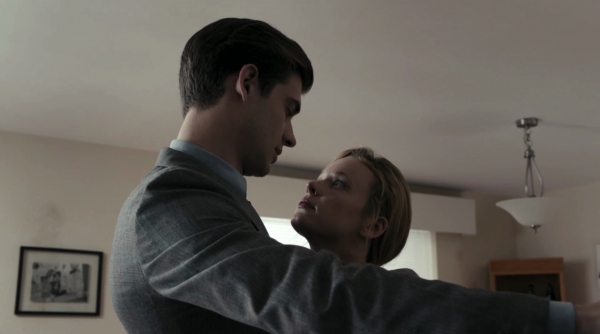
Advertisement:
Verkhovensky, who fell in love with the "civilian role" and lives "incarnated as a reproach" to his homeland, is surrounded by local liberal-minded youth. There is a lot of "phrase" and posture in it, but there is also enough intelligence and insight. He was the tutor of many of the characters in the novel. Formerly handsome, now he is somewhat lowered, flabby, plays cards and indulges in champagne.
The arrival of Nikolai Stavrogin, an extremely "mysterious and romantic" person about whom there are many rumors, is expected. He served in an elite guards regiment, fought duels, was demoted, and curried. Then it is known that he swaggered, embarked on the wildest unbridledness. Having been in his native city four years ago, he played a lot of tricks, causing general indignation: he dragged the respectable man Gaganov by the nose, painfully bit the then governor on the ear, publicly kissed someone else's wife ... In the end, everything seemed to be explained by delirium tremens. Having recovered, Stavrogin went abroad.
Having recovered, Stavrogin went abroad.
His mother Varvara Petrovna Stavrogina, a resolute and imperious woman, worried about her son's attention to her pupil Daria Shatova and interested in his marriage to the daughter of a friend Liza Tushina, decides to marry her ward Stepan Trofimovich to Daria. He, in some horror, although not without enthusiasm, is preparing to make an offer.
Advertisement:
In the cathedral, at mass, Marya Timofeevna Lebyadkina, aka Khromonozhka, unexpectedly approaches Varvara Petrovna and kisses her hand. An intrigued lady, who recently received an anonymous letter informing her that a lame woman would play a serious role in her fate, invites her to her place, and Liza Tushina is also traveling with them. An excited Stepan Trofimovich is already waiting there, since it is on this day that his matchmaking with Daria is scheduled. Soon, Captain Lebyadkin, who arrived for his sister, also appears here, in whose vague speeches, interspersed with verses of his own composition, some terrible secret is mentioned and some special rights are hinted at.
They suddenly announce the arrival of Nikolai Stavrogin, who was expected only in a month. First, the fussy Pyotr Verkhovensky appears, followed by the pale and romantic handsome Stavrogin himself. Varvara Petrovna immediately asks her son if Marya Timofeevna is his legal wife. Stavrogin silently kisses his mother's hand, then nobly grabs Lebyadkin's arm and leads her out. In his absence, Verkhovensky tells a beautiful story about how Stavrogin inspired a beautiful dream in a downtrodden holy fool, so that she even imagined him as her fiancé. Immediately, he sternly asks Lebyadkin if this is true, and the captain, trembling with fear, confirms everything.
Advertisement:
Varvara Petrovna is delighted and when her son appears again, she asks his forgiveness. However, the unexpected happens: Shatov suddenly comes up to Stavrogin and slaps him. The fearless Stavrogin grabs him in anger, but then suddenly removes his hands behind his back. As it turns out later, this is another testament to his great strength, another test.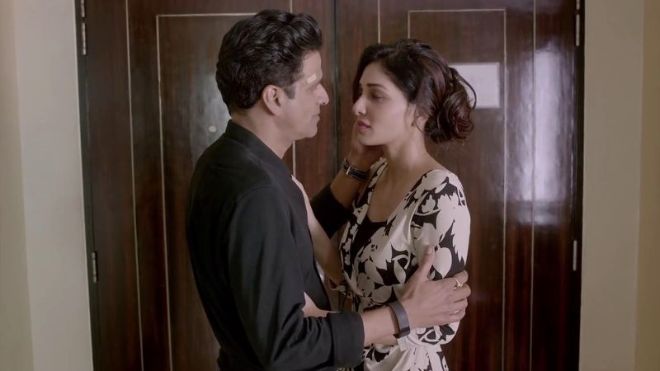 Shatov comes out unhindered. Lisa Tushina, clearly not indifferent to "Prince Harry", as Stavrogin is called, faints.
Shatov comes out unhindered. Lisa Tushina, clearly not indifferent to "Prince Harry", as Stavrogin is called, faints.
Eight days pass. Stavrogin does not accept anyone, and when his seclusion ends, Pyotr Verkhovensky immediately slips in to him. He expresses his readiness to do anything for Stavrogin and informs about a secret society at whose meeting they should appear together. Shortly after his visit, Stavrogin goes to the engineer Kirillov. The engineer, for whom Stavrogin means a lot, reports that he still professes his idea. Its essence is the need to get rid of God, who is nothing but "the pain of the fear of death", and to declare self-will by killing oneself and thus becoming a man-god.
Advertisement:
Then Stavrogin goes up to Shatov, who lives in the same house, to whom he informs that he really officially married Lebyadkina some time ago in St. Petersburg, and also about his intention to publicly announce this in the near future. He magnanimously warns Shatov that they are going to kill him. Shatov, whom Stavrogin had previously had a huge influence on, reveals to him his new idea of a God-bearing people, which the Russian people consider, advises him to give up wealth and achieve God by muzhik labor. True, to a counter question, does he himself believe in God, Shatov somewhat hesitantly answers that he believes in Orthodoxy, in Russia, that he ... will believe in God.
Shatov, whom Stavrogin had previously had a huge influence on, reveals to him his new idea of a God-bearing people, which the Russian people consider, advises him to give up wealth and achieve God by muzhik labor. True, to a counter question, does he himself believe in God, Shatov somewhat hesitantly answers that he believes in Orthodoxy, in Russia, that he ... will believe in God.
The same night Stavrogin goes to Lebyadkin and on the way he meets the fugitive Fedka convict sent to him by Peter Verkhovensky. He expresses his readiness to fulfill any will of the master for a fee, but Stavrogin drives him away. He informs Lebyadkin that he is going to announce his marriage to Marya Timofeevna, whom he married "... after a drunken dinner, because of a bet on wine ...". Marya Timofeevna meets Stavrogin with a story about an ominous dream. He asks her if she is ready to go with him to Switzerland and live the rest of her life in seclusion. The indignant Khromonozhka shouts that Stavrogin is not a prince, that her prince, the bright falcon, was replaced, and he is an impostor, he has a knife in his pocket. Accompanied by her squeals and laughter, the enraged Stavrogin retreats. On the way back, he throws money to Fedka Convict.
Accompanied by her squeals and laughter, the enraged Stavrogin retreats. On the way back, he throws money to Fedka Convict.
Advertisement:
The next day there is a duel between Stavrogin and the local nobleman Artemy Gaganov, who summoned him for insulting his father. Seething with anger, Gaganov shoots three times and misses. Stavrogin, on the other hand, announces that he does not want to kill anyone else, and demonstratively shoots into the air three times. This story greatly raises Stavrogin in the eyes of society.
Meanwhile, frivolous moods and a penchant for various kinds of blasphemous pastimes have emerged in the city: mockery of newlyweds, desecration of icons, etc. cholera is raging, the workers of the Shpigulins’ closed factory are showing discontent, a certain second lieutenant, unable to bear the commander’s reprimand, rushes at him and bites him on the shoulder, and before that he had chopped up two images and lit church candles in front of the writings of Focht, Moleschott and Buchner . .. In this atmosphere, a holiday is being prepared by subscription in favor of governesses, started by the wife of the governor, Yulia Mikhailovna.
.. In this atmosphere, a holiday is being prepared by subscription in favor of governesses, started by the wife of the governor, Yulia Mikhailovna.
Advertisement:
Varvara Petrovna, offended by Stepan Trofimovich's too obvious desire to get married and his too frank letters to his son Peter complaining that, they say, they want to marry him "for other people's sins", assigns him a pension, but at the same time announces about a break.
Junior Verkhovensky at this time develops a vigorous activity. He is admitted to the house of the governor and enjoys the patronage of his wife Yulia Mikhailovna. She believes that he is connected with the revolutionary movement, and dreams of uncovering a state conspiracy with his help. On a meeting with Governor von Lembke, who is extremely preoccupied with what is happening, Verkhovensky skillfully gives him several names, in particular Shatov and Kirillov, but at the same time asks him for six days to reveal the entire organization. Then he runs to Kirillov and Shatov, notifying them of the meeting of "ours" and asking them to be there, after which he calls in for Stavrogin, who has just been visited by Mavriky Nikolayevich, the fiancé of Lisa Tushina, with a proposal that Nikolai Vsevolodovich marry her, since she is at least and hates him, but at the same time loves him. Stavrogin confesses to him that he cannot do this in any way, since he is already married. Together with Verkhovensky, they go to a secret meeting.
Then he runs to Kirillov and Shatov, notifying them of the meeting of "ours" and asking them to be there, after which he calls in for Stavrogin, who has just been visited by Mavriky Nikolayevich, the fiancé of Lisa Tushina, with a proposal that Nikolai Vsevolodovich marry her, since she is at least and hates him, but at the same time loves him. Stavrogin confesses to him that he cannot do this in any way, since he is already married. Together with Verkhovensky, they go to a secret meeting.
Advertisement:
Gloomy Shigalev speaks at the meeting with his program of "final settlement of the issue". Its essence is the division of humanity into two unequal parts, of which one tenth receives freedom and unlimited right over the remaining nine tenths, turned into a herd. Then Verkhovensky proposes a provocative question whether the participants in the meeting would have reported if they had known about the impending political assassination. Shatov suddenly rises and, calling Verkhovensky a scoundrel and a spy, leaves the meeting. This is what Pyotr Stepanovich needs, who has already outlined Shatov as a victim in order to cement the formed revolutionary group, the "five", with blood. Verkhovensky ties in with Stavrogin, who has gone out with Kirillov, and, in a fever, initiates them into his crazy plans. His goal is to cause great confusion. “There will be such a buildup that the world has not yet seen ... Russia will become clouded, the earth will cry for the old gods ...” Then he will be needed, Stavrogin. A handsome man and an aristocrat. Ivan Tsarevich.
This is what Pyotr Stepanovich needs, who has already outlined Shatov as a victim in order to cement the formed revolutionary group, the "five", with blood. Verkhovensky ties in with Stavrogin, who has gone out with Kirillov, and, in a fever, initiates them into his crazy plans. His goal is to cause great confusion. “There will be such a buildup that the world has not yet seen ... Russia will become clouded, the earth will cry for the old gods ...” Then he will be needed, Stavrogin. A handsome man and an aristocrat. Ivan Tsarevich.
Events are growing like a snowball. Stepan Trofimovich is "described" - officials come and take the papers. Workers from the Shpigulin factory send petitioners to the governor, which causes von Lembke to have a fit of rage and almost passes for a riot. Falls under the hot hand of the mayor and Stepan Trofimovich. Immediately after this, in the governor's house, there is also Stavrogin's confusing announcement that Lebyadkina is his wife.
Advertisement:
The long-awaited day of the holiday is coming. The highlight of the first part is the reading by the famous writer Karmazinov of his farewell essay "Merci", and then Stepan Trofimovich's accusatory speech. He passionately defends Raphael and Shakespeare against the nihilists. He is booed, and cursing everyone, he proudly leaves the stage. It becomes known that Liza Tushina in broad daylight suddenly moved from her carriage, leaving Mavriky Nikolaevich there, to Stavrogin's carriage and drove off to his Skvoreshniki estate. The highlight of the second part of the holiday is the "quadrille of literature", an ugly and caricatured allegorical act. The governor and his wife are beside themselves with indignation. It was then that they reported that the Zarechye was on fire, allegedly set on fire by the Shpigulins, and a little later it became known about the murder of Captain Lebyadkin, his sister and maid. The governor goes to the fire, where a log falls on him.
The highlight of the first part is the reading by the famous writer Karmazinov of his farewell essay "Merci", and then Stepan Trofimovich's accusatory speech. He passionately defends Raphael and Shakespeare against the nihilists. He is booed, and cursing everyone, he proudly leaves the stage. It becomes known that Liza Tushina in broad daylight suddenly moved from her carriage, leaving Mavriky Nikolaevich there, to Stavrogin's carriage and drove off to his Skvoreshniki estate. The highlight of the second part of the holiday is the "quadrille of literature", an ugly and caricatured allegorical act. The governor and his wife are beside themselves with indignation. It was then that they reported that the Zarechye was on fire, allegedly set on fire by the Shpigulins, and a little later it became known about the murder of Captain Lebyadkin, his sister and maid. The governor goes to the fire, where a log falls on him.
In Skvoreshniki, meanwhile, Stavrogin and Liza Tushina greet the morning together. Lisa intends to leave and does her best to hurt Stavrogin, who, on the contrary, is in a sentimental mood uncharacteristic of him. He asks why Liza came to him and why there was "so much happiness". He invites her to leave together, which she takes with mockery, although at some point her eyes suddenly light up. Indirectly, in their conversation, the topic of murder also comes up - so far only a hint. At that moment, the omnipresent Peter Verkhovensky appears. He tells Stavrogin the details of the murder and fire in the District. Lisa Stavrogin says that he did not kill and was against it, but he knew about the impending murder and did not stop it. In hysterics, she leaves Stavrogin's house, not far from her, the devoted Mavriky Nikolaevich, who has sat all night in the rain, is waiting for her. They head to the scene of the murder and meet Stepan Trofimovich along the way, who, in his words, is running "out of delirium, a feverish dream, to look for Russia." get rid of his wife and take another.
Lisa intends to leave and does her best to hurt Stavrogin, who, on the contrary, is in a sentimental mood uncharacteristic of him. He asks why Liza came to him and why there was "so much happiness". He invites her to leave together, which she takes with mockery, although at some point her eyes suddenly light up. Indirectly, in their conversation, the topic of murder also comes up - so far only a hint. At that moment, the omnipresent Peter Verkhovensky appears. He tells Stavrogin the details of the murder and fire in the District. Lisa Stavrogin says that he did not kill and was against it, but he knew about the impending murder and did not stop it. In hysterics, she leaves Stavrogin's house, not far from her, the devoted Mavriky Nikolaevich, who has sat all night in the rain, is waiting for her. They head to the scene of the murder and meet Stepan Trofimovich along the way, who, in his words, is running "out of delirium, a feverish dream, to look for Russia." get rid of his wife and take another.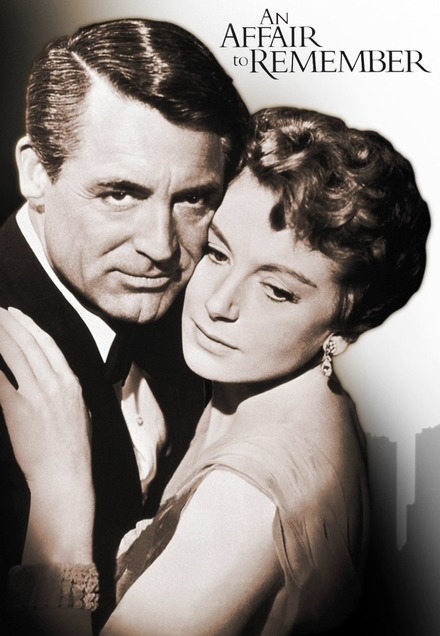 Someone from the crowd hits her, she falls. Lagging Mavriky Nikolaevich manages too late. Lisa is carried away still alive, but unconscious.
Someone from the crowd hits her, she falls. Lagging Mavriky Nikolaevich manages too late. Lisa is carried away still alive, but unconscious.
Advertisement:
A. Pyotr Verkhovensky keeps busy. He collects five and announces that a denunciation is being prepared. The scammer is Shatov, he must be removed by all means. After some doubts, they agree that the common cause is the most important thing. Verkhovensky, accompanied by Liputin, goes to Kirillov to remind him of the agreement according to which he must, before committing suicide in accordance with his idea, take on other people's blood. Fedka convict is sitting in the kitchen of Kirillov drinking and eating. In anger, Verkhovensky snatches out a revolver: how could he disobey and appear here? Fedka unexpectedly beats Verkhovensky, he falls unconscious, Fedka runs away. To the witness of this scene, Liputin, Verkhovensky declares that Fedka drank vodka for the last time. In the morning, it really becomes known that Fedka was found with a broken head seven miles from the city.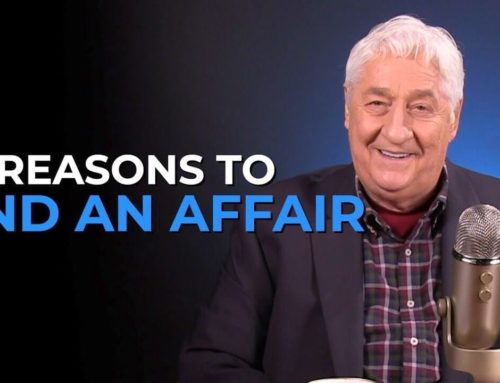 Liputin, who was about to run away, now has no doubts about the secret power of Peter Verkhovensky and remains.
Liputin, who was about to run away, now has no doubts about the secret power of Peter Verkhovensky and remains.
The same evening his wife Marya comes to Shatov, who left him after two weeks of marriage. She is pregnant and asks for temporary shelter. A little later, a young officer Erkel from "ours" comes to him and reports on tomorrow's meeting. At night, Shatov's wife goes into labor. He runs after the midwife Virginskaya and then helps her. He is happy and looks forward to a new working life with his wife and child. Exhausted, Shatov falls asleep in the morning and wakes up already after dark. Erkel comes after him, and together they head to Stavrogin Park. Verkhovensky, Virginsky, Liputin, Lyamshin, Tolkachenko and Shigalev are already waiting there, who suddenly categorically refuses to take part in the murder, because it contradicts his program.
Shatov is being attacked. Verkhovensky shoots him at point-blank range with a revolver. Two large stones are tied to the body and thrown into the pond.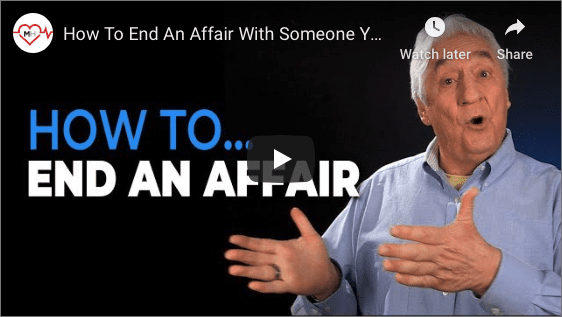 Verkhovensky hurries to Kirillov. Although he is indignant, he fulfills his promise - he writes a note under dictation and takes the blame for the murder of Shatov, and then shoots himself. Verkhovensky collects his things and leaves for Petersburg, from there abroad.
Verkhovensky hurries to Kirillov. Although he is indignant, he fulfills his promise - he writes a note under dictation and takes the blame for the murder of Shatov, and then shoots himself. Verkhovensky collects his things and leaves for Petersburg, from there abroad.
Having set off on his last wandering, Stepan Trofimovich dies in a peasant hut in the arms of Varvara Petrovna, who rushed after him. Before his death, a random fellow traveler, to whom he tells his whole life, reads him the Gospel, and he compares the possessed, from whom Christ cast out the demons that entered the pigs, with Russia. This passage from the Gospel is taken by the chronicler as one of the epigraphs to the novel.
Advertisement:
All participants in the crime, except for Verkhovensky, were soon arrested, issued by Lyamshin. Daria Shatova receives a letter of confession from Stavrogin, who admits that "one denial poured out of it, without any generosity and without any strength." He invites Daria to Switzerland with him, where he bought a small house in the canton of Uri to live there forever.



